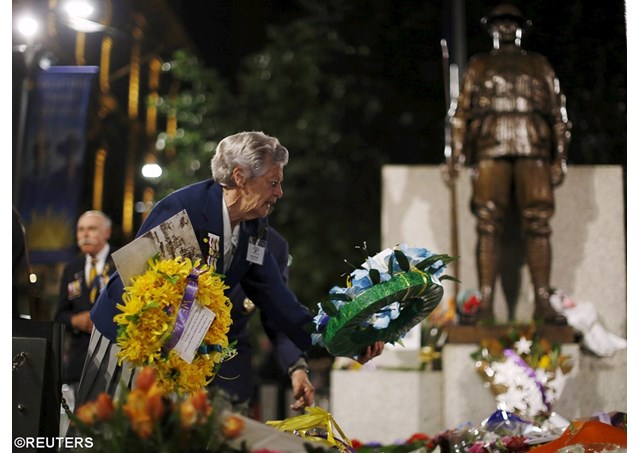
Lest We Forget, Australia and New Zealand remember fallen soldiers

In Australia and New Zealand, this April 25th is ANZAC Day and marks one hundred years since the start of the Battle of Gallipoli during World War I, and this day is remembered now as one of the most important memorial days in the two countries. Vatican Radio spoke to Ambassador John McCarthy about ANZAC Day.
Click below to listen to the interview:
On the eve of the memorial, the Australian Ambassador to the Holy See, His Excellency John McCarthy, gave an interview to Vatican Radio about ANZAC day and its importance for both those who died in service of their countries, and for those who carry on their memory. The Ambassador spoke of the many virtues which the soldiers exhibited, both civic and military, including compassion, courage and civility, and mentioned that many of the values which are associated with the ANZACs are still considered to be fundamental in Australian and New Zealand society. The Ambassador placed special emphasis on the ANZAC memory and said “we are a nation that sums up our collective experience together with ANZAC at the centre with the words ‘Lest We Forget’ and that is remembered every year, and this is the centenary of this remembering.”
An Acronym Lives on
Coined one century ago, the term ANZAC stands for Australian and New Zealand Army Corps, and was the name of the combined military forces of the two nations that were formed in Egypt and deployed to fight on the Gallipoli peninsula during the First World War. The Battle of Gallipoli lasted from late April 1915 to early January 1916, in an attempt to capture the Gallipoli peninsula in order to secure the Dardennelles, a narrow straight which links the Black Sea to the Mediterranean Sea. The Battle was fought between the Allied and the Ottomon Empire, and consisted of troops from France, Britain, India (including Gurkhas), New Foundland, Australia and New Zealand. The Battle of Gallipoli lasted for only 8 months before the Allies retreated, conceding victory to the Ottoman Empire. After the retreat, Corps was disbanded and the soldiers were sent to other theatres of the First World War, however the five letter acronymn which came to symbolise the soldiers, lived on. For both Australia and New Zealand, the campaign was to have lasting effects on the two countries which are felt to this day.
| All the contents on this site are copyrighted ©. |


